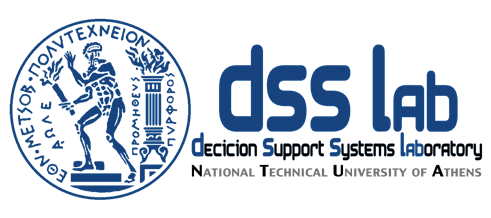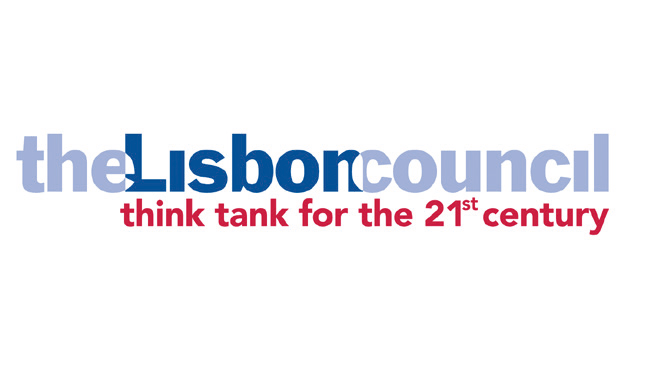Data-Driven policy-making - Future research directions and policy implications
The Big Policy Canvas H2020 Support Action developed a roadmap for research in Data-Driven Policy Making outlining possible path for using big data and open innovation to transform governance and policy making.
While building on previous similar exercises conducted as part of the CROSSROAD and CROSSOVER projects, the new roadmap may represent a stepping stone for future research and policy orientation in the EU, in light of the agenda of the new Commission.
One of the core issues which highlights most of the current policy debate in fact is about the ambiguous effects technology brings about. Digital technologies have enabled countless of opportunities for those able to utilise it and could be used for many beneficial purposes by governmental organisations. On the other hand, the same technology could also be used to increase inequality and threaten democracy.
This issue is highly related with the unbalanced power relations in the current digital economy, with only a small amount of organisations controlling most, if not all, of the digital media. While these new platforms have created new business models and are a way to connect with each other, the increasing capability to analyse all the gathered data by Big Data Analytics or Artificial Intelligence, calls for the need to guarantee public value is generated and fairly shared and promote social cohesion and inclusiveness.
In this respect, we are witnessing the rapid development of smart, intelligent or autonomous systems that do not simply execute predefined instructions or tasks. They can also learn and adapt with limited human intervention, and/or collaborate with humans to identify problems, find new solutions and execute them faster and in previously unforeseen ways, or – if used in a malicious way cause harm and/or increasingly shift the cognitive capacities of human being, having a profound impact on the world we live in, from industry and work, through our personal and social spaces to government and politics.
The attention from the research community and policy makers on policies to prevent the possible misuses of technology, and in particular AI, shall thus be considered central in the discussion on data-driven policy making.
Similarly, one of the main opportunities that open innovation and co-creation can foster is citizen engagement in designing new governance models that take into consideration what do citizens expect and which institutional settings they do favour.
Future research should definitely expand on the groups of citizens from various different backgrounds to assess what they see as the main social issues and what kind of governmental system they appreciate or fear, for better understanding the direct and indirect consequences of different policy making mechanisms.
In the same vein, the recent rise of the discussion on what has been called "surveillance capitalism" indeed shows the problems of consumers being manipulated by algorithms to maximize profit of companies; without considering the public good. Arguably this is a worrying development, which should be followed very carefully in order to make sure that regulation on the role of data and algorithms are well crafted. Especially regulation on the transparency and the ethical use and design of these algorithms should be seen as a strong starting point to ensure that Artificial Intelligence will be used for the social good, rather than solely private, monetary goals.
In this respect, the increasing availability of data gathered through AI and Internet of Things technologies will increase the capacity to better understand and personalise service delivery and quality of policy so to enhance their impact. However, for this to become a reality, data-sharing between private and public organizations, and citizens data management, is crucial.
A fundamental aspect to consider in the relations between public and private sector clearly refers to the way citizens data and sensitive information are shared and used. Cases such as the use of non-anonymized medical records to develop machine learning tools for early detection of diseases or injuries that have been reported, or the techniques to capture users' attention or induce addictive behaviours that are now recognised to be at the core of the business models for the most powerful technology companies, are increasingly showing the need to recalibrate the public-private relation and define rules on how Machine Learning systems collect and extract economic value from any type of data. This is of particular concern for public services, where a new way of service delivery may however benefit tremendously of healthy and win-win public-private partnerships.
The choice that will be made in the realm of data governance will clearly impact also on the relationship between citizens and governments. Changing the way current institutions work, using more collaborative policy making approaches and using digital technologies and data visualisations to establish easy to use and informative channels of interactions between citizens and policy makers is definitely key to restore trust on policy-makers.
This would require a strong feedback loop from society, politicians and civil society to ensure that a fine balance between requested regulation and protections is ensured. Of course, there is no predefined way to get this balance right, but it should be the result of a continuous process of experimentation, feedback and responsiveness based on addressing citizen's needs and the dire societal challenges of our era.
So, it is time not only to design a new "business model canvas" for policy-making, but to operationalise it to experiment innovative governance models and use it to better understand how data-driven policy making can really transform government in the digital age and create better shared future for all Europeans!




